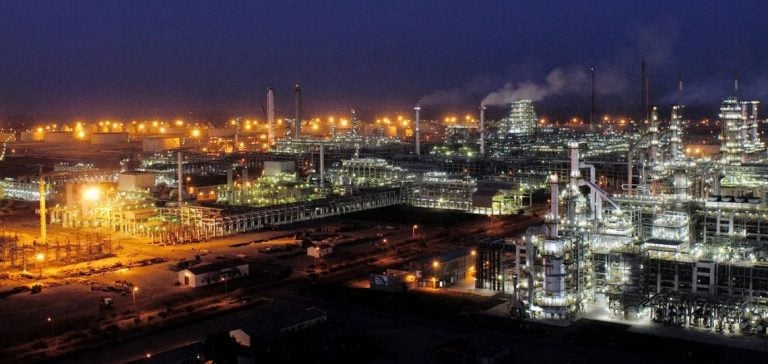Reliance Industries Ltd., an Indian energy and chemicals giant, announced a 1% increase in its crude throughput, reaching 20.2 million metric tons (1.6 million barrels per day) in the third quarter of the fiscal year, according to a statement released on October 14.
This performance was achieved despite unfavorable market conditions impacting the company’s Oil-to-Chemicals (O2C) division. Reliance Chairman Mukesh Ambani noted that robust growth in the upstream sector partially offset the relatively weak contribution from the petrochemical business.
Financial Performance and Segmentation
During the same quarter, revenues from the O2C sector increased by 5.1% year-on-year, reaching $18.6 billion. This increase was primarily attributed to higher processed volumes and better domestic product distribution. However, the company noted that an unfavorable demand-supply balance led to a significant 50% decline in transportation fuel margins and ongoing weakness in downstream chemical deltas.
Margins for fuels such as gasoline, gasoil, and kerosene decreased from elevated levels a year ago due to softer demand coupled with increased supply from new refineries coming online in the Middle East, Asia-Pacific, and Nigeria. Despite this margin decline, domestic demand for high-speed diesel, gasoline, and jet fuel increased by 0.1%, 7.3%, and 9.4%, respectively, compared to the same quarter last year.
Polymer and Polyester Demand
The quarter was also marked by a decline in domestic demand for polymers and polyester. Domestic polyethylene demand fell by 12%, mainly due to a high base effect from the previous year, where imports surged due to prolonged low prices. Meanwhile, the demand for polyvinyl chloride increased by 3%, supported by government-sponsored programs in the agricultural and infrastructure sectors.
In the polyester segment, demand for polyethylene terephthalate decreased by 10% year-on-year, largely due to an extended monsoon season that affected production and distribution. These fluctuations in polymer demand reflect the seasonal and economic challenges faced by the petrochemical sector.
Production and Gas Prices
Regarding production, Reliance maintained its share of production in the KG-D6 block at 69.3 billion cubic feet equivalent of gas (Bcfe) for the quarter, compared to 68.3 Bcfe produced in the previous year. The average price realized for KG-D6 gas was $9.55 per million British thermal units (MMBtu), down from $10.46 per MMBtu in the same quarter last year.
Renewable Energy Initiatives
Additionally, Reliance announced that the first of its new energy gigafactories is on track to begin producing solar photovoltaic (PV) modules by the end of this year. With a comprehensive range of renewable solutions including solar, energy storage systems, green hydrogen, bio-energy, and wind, the company’s new energy sector is well-positioned to become a major contributor to the global clean energy transition.
These initiatives are part of Reliance’s overall strategy to diversify its energy sources and strengthen its presence in clean energy, responding to the growing demands for sustainability and carbon emission reduction.





















